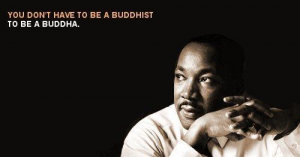L.M. Browning's Blog, page 29
September 4, 2011
The Truce | A Poem

The Truce
by: L.M. Browning
Pluck a strand of wind
and listen to the trees quiver.
Run until your heart pounds
and watch the stagnant surface of the pond ripple.
Throw back the suffocating blankets of false comfort
and let yourself feel the renewal of the rain.
Only when we overcome our fear of being alone with ourselves
can we come to know the company that is always with us. More>>








August 27, 2011
The Ripple Effect | A Letter
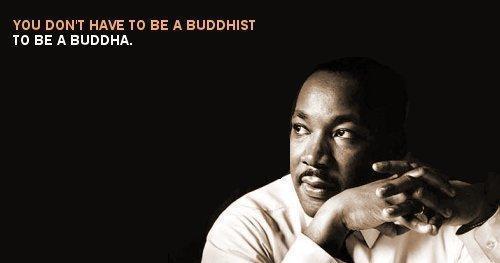
Image by Frank Owen
A year ago today I released Rumination at Twilight: Poetry Exploring the Sacred but strangely enough, on this day I am not thinking about my small accomplishment but a speech that was spoken 48 years ago. It was on the 28th of August in 1963 that, on the steps of the Lincoln Memorial, Dr. Martin Luther King shared The Dream with all those that gathered and with the generations to come who would listen to his words echo down the years.
His is a life that teaches us so many things…. Personally, when I think of his life many truths resound in my mind, but none more loudly than: the power of the written word. As an essayist and poet, I have heard many people question the place of these writing forms I hold dear, given that these styles of writing have become unfashionable. When I hear this—when I hear people question the power of writing down one's views—I always bring up the example of Dr. King; for it was one essay written by Henry David Thoreau entitled, Civil Disobedience that inspired a lawyer in India who would come to be known as the Mahatma and lead India to freedom, who would in turn would one day inspire Dr. King to lead this country out of its entrenched ignorance through non-violent protest. All these movements began because Henry David Thoreau took up his pen and wrote down his thoughts—thoughts which brought about a short stay in prison for him and much grief in his community, but that were nonetheless more than worth putting down.
Watch The "I Have a Dream" Speech in Full Here








August 26, 2011
The Ripple Effect | A Letter
A year ago today I released Rumination at Twilight: Poetry Exploring the Sacred but strangely enough, on this day I am not thinking about my small accomplishment but a speech that was spoken 48 years ago. It was on the 28th of August in 1963 that, on the steps of the Lincoln Memorial, Dr. Martin Luther King shared The Dream with all those that gathered and with the generations to come who would listen to his words echo down the years.
His is a life that teaches us so many things…. Personally, when I think of his life many truths resound in my mind, but none more loudly than: the power of the written word. As an essayist and poet, I have heard many people question the place of these writing forms I hold dear, given that these styles of writing have become unfashionable. When I hear this—when I hear people question the power of writing down one's views—I always bring up the example of Dr. King; for it was one essay written by Henry David Thoreau entitled, Civil Disobedience that inspired a lawyer in India who would come to be known as the Mahatma and lead India to freedom, who would in turn would one day inspire Dr. King to lead this country out of its entrenched ignorance through non-violent protest. All these movements began because Henry David Thoreau took up his pen and wrote down his thoughts—thoughts which brought about a short stay in prison for him and much grief in his community, but that were nonetheless more than worth putting down.
Watch The "I Have a Dream" Speech in Full Here
Artwork provided by Frank Owen | Copyright Frank Owen
August 14, 2011
Where We Find Civilization | A Journal Entry
 I am not a city person. As much as I have experienced a "rough street upbringing," I am still a small town girl who finds herself lost and bombarded in the city.
I am not a city person. As much as I have experienced a "rough street upbringing," I am still a small town girl who finds herself lost and bombarded in the city.
The city, I suppose, is meant to be the pinnacle in mankind's achievement of civilization. However, in my view, there is nothing less civilized than a city. To me, its character, has always been one of rudeness; I find most of the sounds, sights and smells offensive.
In my mind civilization equates peace. Thus far in my journeys, I have found nothing peaceful or harmonious about a city. I write this now returning home on the night train from Boston, business day done. Today in particular, encapsulated the city experience for me. In my mind now loop the images of sights seen, most of which show humanity to be brutish rather than cultured. (Cultured so often being what city life is portrayed as.) Drunkards passed out, mouths hanging open as they lie sprawled out on the stained park benches; waking only long enough to kill-off the plastic bottle of cheap bourbon they bought, drool on themselves and pass out once more. Passing cars kicking up the murky water in the streets, which smells of sewage in the humidity….I could go on but I don't think I need to.
No, cities are not something mankind should boost of as an achievement but rather, something that should be a source of shame. The cities I have visited thus far feel like barbaric outposts. Whereas true civilization is found in the places mankind has yet to touch.
In the end, as the train builds speed, the tall buildings dwindle and the bright lights streak by my window in the night, the truth that I am left with is: Mankind need not create civilization, all we need do is not screw it up. Don't try to improve upon what is naturally beautiful, just preserve it.








August 4, 2011
My Interview With Author Todd Erick Pedersen
Recently Author and Editor L.M. Browning interviewed Todd Erick Pedersenabout his forthcoming novella: The Sapphire Song. The story follows Metaxaeus, a youthful albeit visionary sculptor, who embarks on an odyssey of love and destiny in which he will at last meet face to face with Akasha, an unusually talented storyteller from a distant township. They then undertake their own journey, and along the way these two young lovers, separately and together, encounter mysterious strangers and experience the sublime. Underscoring a fidelity to the sacred dimension of life, that so often unfolds itself to us in the inmost presence of our dreams, and set in a lush and varied landscape, this rich novella beautifully evokes the spiritual power, and the lasting truth, inherent in our quest for an enduring love.
Browning: In a little less than a month you will celebrate the release of your first novel: The Sapphire Song. Briefly, what is the book about?
Pedersen : The story is a panoramic look into the lives of two people, Metaxaeus and Akasha, who we follow from early youth through to an advanced age. We are given the chance to witness how their spiritual development weaves in and out of their love for each other, and how this is in the end really the very essence of their merging.
Browning: What inspired The Sapphire Song? What was the first thought that initiated the many pages that followed?
Pedersen: The original thought was born of frustration: in particular with always encountering the idea that our spiritual maturation must always (and inevitably) be a strictly individual affair at all times, almost like the process of dying or birth. Because this idea would always prompt me to think: "Yes, and true enough in a way, but shouldn't the whole purpose of a meaningful path in life be ultimately to introduce people, as intimately as possible, to their own true selves… and what if that 'true self' happens to be in the end an other, who one might find oneself connected to on no less than that deep a level?" So you can see, it's very paradoxical. Too it would occur to me, "What about the story of Adam and Eve?"
Browning: One of the main themes in The Sapphire Song is the progression of our individual spiritual paths. In what way is your own spiritual progression reflected in the story?
Pedersen: I suppose the best way to answer this is to say that my own progression has been (typically?) dotted with intimations—call them "synchronicities" if you will—and these for a long time now, that would indicate a movement toward deeper union, or even toward a particular meeting. I know that's vague, and maybe a little superstitious, too, but archetypally it bears much resemblance to what I've tried to illustrate in the story of Metaxaeus and Akasha.
Browning: The two main characters Metaxaeus and Akasha seem destined to meet from an early age. Do you personally believe in such intertwining paths? Fated love?
Pedersen: Yes. To me, this is a possibility that, psychologically, and in order for our humanness to blossom as fully as it should, has to be allowed, that is, the door needs to be left open for this sort of chance. And all the more so, I believe, if we are to look at it from the point of view of a spiritually creative manifestation, that is, of either the soul, or of individualized spirit—theprobability that a particular love could be woven or embedded, into the universe, into what is real, into the story of things.
And incidentally, I think it would be a mistake to regard this kind of notion as a mere fantastic idea, or worse as some sort of simple wish-fulfilling superstition: because what I believe I'm referring to, and what I have tried to depict in the book, is a truthful and thus the absolutely genuine spiritual unfoldment of two individuals' coming together in a "destined," which here means in a meaningful and a harmonious, way. But this has to be evoked poetically; and cannot be justified either by philosophical argument, or by any psychological probing, alone.
Too I should point out, however, that while the entire book is on one level very much the story of Metaxaeus the man and Akasha the woman who do eventually meet and who are lovers, and who also happen to achieve a spectacular spiritual apotheosis; nevertheless on a deeper level these characters can be reinterpreted entirely, and the whole story can be read, from start to finish, as a retelling, for the twenty-first century, of the parable of Adam and Eve in the Garden of Eden (albeit with a very evident twist, an altogether different trajectory, and even something like a complete reversal…), so that Akasha and Metaxaeus then become authentically archetypal figures, or symbols for humanity.The story might then be read as one of our collective and overarching human destiny: an intimation or a glimpse of where we could all ultimately be heading, which is—and not to give too much away—to a collective theosis.
Browning: The language of The Sapphire Song verges on poetry. Did you ever consider releasing the novel as a narrative poem?
Pedersen: That didn't really cross my mind, no. It was always pretty much intended as a novella, which I have thought of for a while as an especially rich literary form largely because of its ability to approach the poetic. And anyways I tend to think of the poetic, or even of poetry as such, as something not at all restricted to the form of a poem, but rather as the uniquely evocative combination of imagery and ideation, and the play between these two, that is present in any given piece.
Browning: Describe your writing process.
Pedersen: Although by now it is a bit generic to say it this way, nonetheless it's true that my writing process is about receptivity, waiting and listening, and then fine-tuning. Yet there are specific ideas that I do try to feel my way into the atmosphere of more than others, and then see what can come from there.
Browning: What are you working on now?
Pedersen: To be honest, right now I'm not writing anything. I'm not a daily writer; I wait to be moved; so I'm enjoying long walks with my dog on the virtually countless Sun Valley-area trails each afternoon, and otherwise just trying to remain open to whatever might come next, to not cut myself off. So as of now I don't actually know yet either when or what my next project will be.
I think I should at least hint, however, at the likelihood that the Sapphire Song is, at least for me personally, one of those once-in-a-lifetime stories.
But in any event, and as you read the book through, it of course becomes abundantly clear from even the first pages that the story is as much about the primacy of art and creativity and even of their ultimate blending, or non-duality, with the many culminating revelations of the spiritual path, and what is its ultimate gift, its quintessential meaning: love.
July 30, 2011
The Lament of the Wayfarer | A Poem
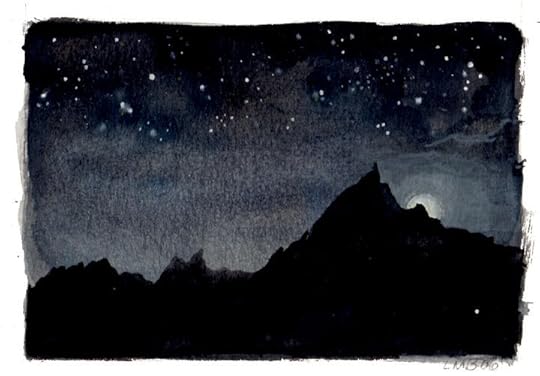
The Lament of the Wayfarer
-
When the day comes
and I at last clear this dense wood,
I shall meet you on the other side.
-
When the day comes
and my path comes back to the place it began,
we shall go on to that next place together.
-
When the dawn comes to this night
and I have seen you through the worst,
you will sit with me until I close my eyes
and wake in my bed, in that home I left so long ago.
-
When the day comes
and I can at last pull up the moorings holding my soul in place,
I shall journey to you and set fire to this vessel I dwell in.
Never to leave you again.
_________________________________________
© 2011 L.M. Browning








July 22, 2011
The Lament of the Wayfarer | A Poem
The Lament of the Wayfarer
by: L.M. Browning
When the day comes
and I at last clear this dense wood,
I shall meet you on the other side.
When the day comes
and my path comes back to the place it began,
we shall go on to that next place together.
When the dawn comes to this night
and I have seen you through the worst,
you will sit with me until I close my eyes
and wake in my bed, in that home I left so long ago.
When the day comes
and I can at last pull up the moorings holding my soul in place,
I shall journey to you and set fire to this vessel I dwell in.
Never to leave you again.
Header Art by L.M. Browning "Black Tors" Watercolor on Cotton
July 19, 2011
L.M. Browning Interviews Todd Erick Pedersen Author of The Sapphire Song
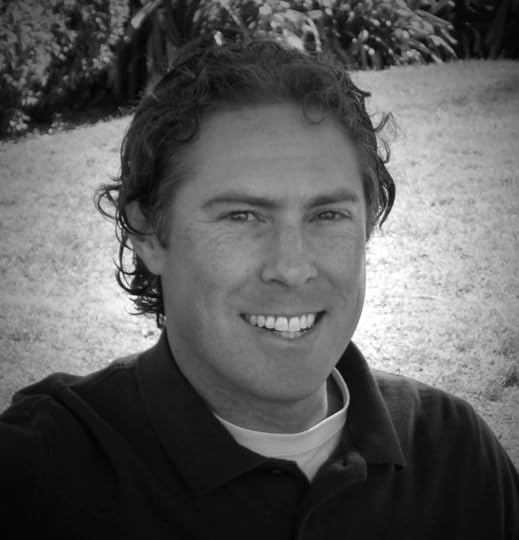 Recently Author and Editor L.M. Browning interviewed Todd Erick Pedersen about his forthcoming novella: The Sapphire Song.
Recently Author and Editor L.M. Browning interviewed Todd Erick Pedersen about his forthcoming novella: The Sapphire Song.
________
Browning: In a little less than a month you will celebrate the release of your first novel: The Sapphire Song. Briefly, what is the book about?
Pedersen : The story is a panoramic look into the lives of two people, Metaxaeus and Akasha, who we follow from early youth through to an advanced age. We are given the chance to witness how their spiritual development weaves in and out of their love for each other, and how this is in the end really the very essence of their merging.
Browning: What inspired The Sapphire Song? What was the first thought that initiated the many pages that followed?
Pedersen: The original thought was born of frustration: in particular with always encountering the idea that our spiritual maturation must always (and inevitably) be a strictly individual affair at all times, almost like the process of dying or birth. Because this idea would always prompt me to think: "Yes, and true enough in a way, but shouldn't the whole purpose of a meaningful path in life be ultimately to introduce people, as intimately as possible, to their own true selves… and what if that 'true self' happens to be in the end an other, who one might find oneself connected to on no less than that deep a level?" So you can see, it's very paradoxical. Too it would occur to me, "What about the story of Adam and Eve?"
Browning: One of the main themes in The Sapphire Song is the progression of our individual spiritual paths. In what way is your own spiritual progression reflected in the story?
Pedersen: I suppose the best way to answer this is to say that my own progression has been (typically?) dotted with intimations—call them "synchronicities" if you will—and these for a long time now, that would indicate a movement toward deeper union, or even toward a particular meeting. I know that's vague, and maybe a little superstitious, too, but archetypally it bears much resemblance to what I've tried to illustrate in the story of Metaxaeus and Akasha.
Browning: The two main characters Metaxaeus and Akasha seem destined to meet from an early age. Do you personally believe in such intertwining paths? Fated love?
Pedersen: Yes. To me, this is a possibility that, psychologically, and in order for our humanness to blossom as fully as it should, has to be allowed, that is, the door needs to be left open for this sort of chance. And all the more so, I believe, if we are to look at it from the point of view of a spiritually creative manifestation, that is, of either the soul, or of individualized spirit—theprobability that a particular love could be woven or embedded, into the universe, into what is real, into the story of things.
And incidentally, I think it would be a mistake to regard this kind of notion as a mere fantastic idea, or worse as some sort of simple wish-fulfilling superstition: because what I believe I'm referring to, and what I have tried to depict in the book, is a truthful and thus the absolutely genuine spiritual unfoldment of two individuals' coming together in a "destined," which here means in a meaningful and a harmonious, way. But this has to be evoked poetically; and cannot be justified either by philosophical argument, or by any psychological probing, alone.
Too I should point out, however, that while the entire book is on one level very much the story of Metaxaeus the man and Akasha the woman who do eventually meet and who are lovers, and who also happen to achieve a spectacular spiritual apotheosis; nevertheless on a deeper level these characters can be reinterpreted entirely, and the whole story can be read, from start to finish, as a retelling, for the twenty-first century, of the parable of Adam and Eve in the Garden of Eden (albeit with a very evident twist, an altogether different trajectory, and even something like a complete reversal…), so that Akasha and Metaxaeus then become authentically archetypal figures, or symbols for humanity.The story might then be read as one of our collective and overarching human destiny: an intimation or a glimpse of where we could all ultimately be heading, which is—and not to give too much away—to a collective theosis.
Browning: The language of The Sapphire Song verges on poetry. Did you ever consider releasing the novel as a narrative poem?
Pedersen: That didn't really cross my mind, no. It was always pretty much intended as a novella, which I have thought of for a while as an especially rich literary form largely because of its ability to approach the poetic. And anyways I tend to think of the poetic, or even of poetry as such, as something not at all restricted to the form of a poem, but rather as the uniquely evocative combination of imagery and ideation, and the play between these two, that is present in any given piece.
Browning: Describe your writing process.
Pedersen: Although by now it is a bit generic to say it this way, nonetheless it's true that my writing process is about receptivity, waiting and listening, and then fine-tuning. Yet there are specific ideas that I do try to feel my way into the atmosphere of more than others, and then see what can come from there.
Browning: What are you working on now?
Pedersen: To be honest, right now I'm not writing anything. I'm not a daily writer; I wait to be moved; so I'm enjoying long walks with my dog on the virtually countless Sun Valley-area trails each afternoon, and otherwise just trying to remain open to whatever might come next, to not cut myself off. So as of now I don't actually know yet either when or what my next project will be.
I think I should at least hint, however, at the likelihood that the Sapphire Song is, at least for me personally, one of those once-in-a-lifetime stories.
But in any event, and as you read the book through, it of course becomes abundantly clear from even the first pages that the story is as much about the primacy of art and creativity and even of their ultimate blending, or non-duality, with the many culminating revelations of the spiritual path, and what is its ultimate gift, its quintessential meaning: love








July 7, 2011
Come on over to Hiraeth Press and Nourish Yourself!
Come on over to the Hiraeth Press homepage and see what is new!
To announce Hiraeth Press' new Nourish Yourself campaign and in an effort to help our patrons stock up for their summer reading, from now until August er are offering 15% off all Hiraeth Press titles bought in our online Bookstore. This sale even includes our new selections such as the poetry collection Estuaries by Jason Kirkey, which features the full-color photography of James Liter, and our latest release Western Solstice by Leonore Wilson. Stock up your bookshelves without worrying about your budget. Don't miss out!
~
With each Hiraeth Press book you add to your home library you lend support to the philosophy for which the press stands, joining us in our philanthropic endeavors and helping to keep our honorable intentions alive. In an effort to reciprocate, we choose to publish titles that will not only provide a relaxing experience for our readers but will act as nourishment for the spirit. As you sustain us, we seek in some small way to sustain you. It is our desire to nourish our readers—offering our books like a rich mulch to bolster the soul and help the mind flower.
Now more than ever we mustn't neglect our well-being.
Be gentle with yourself.
Nourish Yourself!








June 22, 2011
Summer Solstice Issue of Written River Now Available!
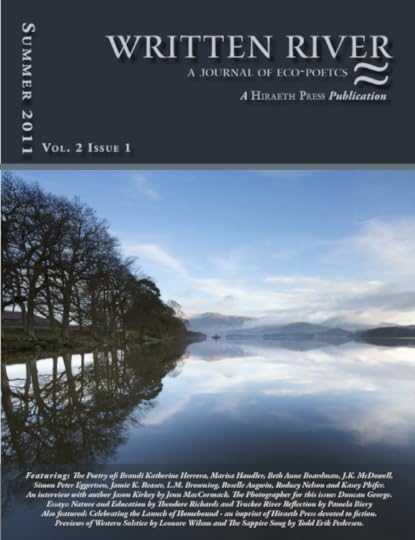 I am pleased to announce the release of the second issue of Written River: A Journal of Eco-Poetics! This issue is overflowing with poetical musings and images. There is the poetry of: Brandi Katherine Herrera, Marisa Handler, Beth Anne Boardman, J.K. McDowell, Simon Peter Eggertsen, Jamie K. Reaser, L.M. Browning, Roselle Angwin, Rodney Nelson and Kasey Phifer. Jason Kirkey speaks with Written River editor Jenn MacCormack about his new poetry collection, Estuaries. We have with stunning landscapes by our feature photographer Duncan George. Our two essayists for this edition are: Theodore Richards with his piece, Nature and Educationand Pamela Biery with her essay, Truckee River Reflection. Also featured: Celebrating the Launch of Homebound – an imprint of Hiraeth Press devoted to fiction. A preview of Western Solstice by Leonore Wilson! As well as a preview of The Sapphire Song – a novella by Todd Erik Pedersen forthcoming this Summer from Homebound.
I am pleased to announce the release of the second issue of Written River: A Journal of Eco-Poetics! This issue is overflowing with poetical musings and images. There is the poetry of: Brandi Katherine Herrera, Marisa Handler, Beth Anne Boardman, J.K. McDowell, Simon Peter Eggertsen, Jamie K. Reaser, L.M. Browning, Roselle Angwin, Rodney Nelson and Kasey Phifer. Jason Kirkey speaks with Written River editor Jenn MacCormack about his new poetry collection, Estuaries. We have with stunning landscapes by our feature photographer Duncan George. Our two essayists for this edition are: Theodore Richards with his piece, Nature and Educationand Pamela Biery with her essay, Truckee River Reflection. Also featured: Celebrating the Launch of Homebound – an imprint of Hiraeth Press devoted to fiction. A preview of Western Solstice by Leonore Wilson! As well as a preview of The Sapphire Song – a novella by Todd Erik Pedersen forthcoming this Summer from Homebound.
I am an associate editor of Written River, along with authors Jason Kirkey and Jenn MacCormack. In this issue you will see a preview of my forthcoming novel, The Nameless Man as well as a poem I wrote this past spring while at sea, sailing to Flat Hammock Island, entitled: Departure from Avery Point.
________________________________________
Written River is available on Issuu.com and Scribd.com
Click here to view/download the new issue of Written River on issuu.com >>
Click here to view/download the new issue of Written River on scribd.com >>









